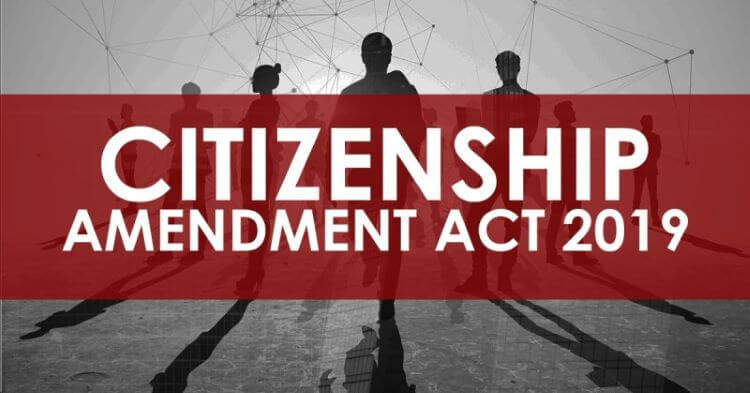What is the full form of CAACAA: Citizenship Amendment ActCAA stands for Citizenship Amendment Act. It was enacted by the govt. f India on 12 December 2019. It was passed by the Lok Sabha on 9th December 2019 and signed by the president of India on 12 December 2019, and thus it became an act. 
The bill is intended to redefine the definition of illegal migrants. This act amends the Indian citizenship act 1955 to grant Indian citizenship to illegal migrants or refugees of six communities, Jain, Hindu, Jain, Parsi, Christian, and Buddhist, from three countries namely, Bangladesh, Pakistan, and Afghanistan. This bill is for the migrants that entered India before 31 December 2014 and, as of now living in India without documentation. So, the cut-off date for the Indian Citizenship act is 31 December 2014. Besides this, this act is for the minorities that are forced to compel to take shelter in India due to their exploitation in their native countries on the ground of their religion or religious persecution. These migrants, after having Indian citizenship, can live anywhere in the country and have all the rights that an Indian citizen is entitled to have. This bill does not include Muslims from these countries as they are not minorities in these countries. Besides this, Sri Lankan Tamils in India, Rohingyas from Myanmar, and Tibetan refugees are also not included in this bill. Citizenship:The idea of citizenship describes the relationship between the nation and the people who comprise it. In exchange for performing specific tasks or obligations owed to the state, it grants a certain individual certain rights, such as the ability to vote, the right to hold certain public posts, and others. Indian citizenship:
Who in India is an illegitimate immigrant?According to the Act, a foreign individual who:
The situation before the Act was passed:
Key features of CAA:1. As per the Citizenship Act 1955, an OCI card can be given to a person if he or she fulfils one of the following conditions:
Now, as per the CAA 2019 such OCI cardholders will be allowed to work, study and travel in India. 2. As per the Citizenship (Amendment) Bill 2016, the OCI cardholder's citizenship can be cancelled due to the following reasons
Now as per the CAA 2019, one more reason for the cancellation of citizenship has been added which is a violation of any law that is in force in the country 3. On getting citizenship through CAA 2019, a person will become an Indian Citizen from the date of their entry which can be on or before 31 December 2014 4. As per the Citizenship Amendment Bill (CAB), 1955, to acquire Indian citizenship a person must have to stay in India for a minimum duration of 11 years. As per the Citizenship Amendment Act, this duration was reduced to 6 years. However, as per CAA, 2019, this duration is reduced to 5 years. 5. This act not only grants citizenship but also intends to close all cases against illegal migrants due to their illegal migration or citizenship. Why was the CAA (Citizenship Amendment Act) opposed?Besides this, the CAA was also opposed by some groups in India as it does not grant citizenship to illegal Muslim migrants from the above-mentioned 3 countries. Thus, it has also been linked with the violation of provisions of article 14 of the constitution of India that restricts discrimination among people based on caste, religion, place, sex, etc.
Next TopicFull Forms List
|
 For Videos Join Our Youtube Channel: Join Now
For Videos Join Our Youtube Channel: Join Now
Feedback
- Send your Feedback to [email protected]
Help Others, Please Share










